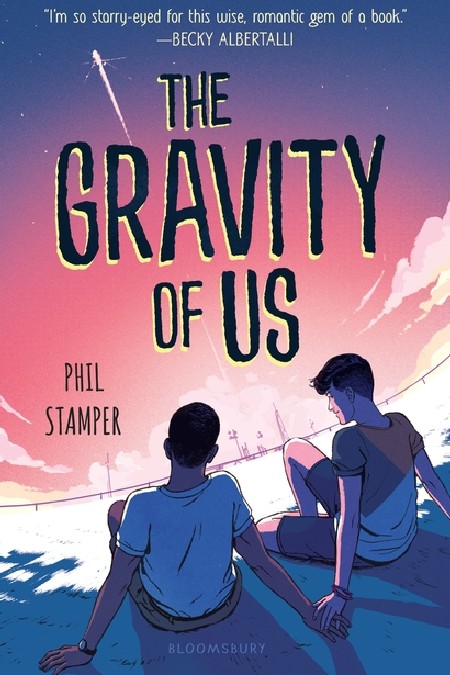
Something that LGBTQIA+ people of a certain age accepted, reluctantly it is best to add and with great disappointment, was that, growing up, they were likely to never see people like them reflected in grand and epic love stories on TV, and in movies and books.
It meant that as they struggled, and this reviewer is very much counted in that number, struggled to come to grips with their sexuality in a society that consistently told them, in ways big and small, that what they intrinsically were was wrong, perverted and desperately uncommon, there were no cultural touchstones with which to orient themselves, to process what they were feeling and, quite rightly, reach the point where they could accept who they were and what they were feeling as entirely normal.
This has been well and truly rectified in recent years as an increasing number of queer creators pour their lives into their books, movies and TV shows, partly as a way of contributing to a much-needed diversity in storytelling, but also to tell the kinds of stories they wish they had been exposed to in their formative years.
Part of this welcome new wave of queer storytelling is The Gravity of Us by Phil Stamper, a YA novel that explores what happens when one displaced young man, aspiring seventeen-year-old journalist Calvin, finally finds his sense of belonging with a person he never expected in a place thousands of miles away from the place he has always called home.
With his pilot/aeronautical engineer dad Calvin Sr suddenly accepted into NASA’s mission to Mars program known as Orpheus, and so quickly that in one disruptive weekend Calvin’s life is completely upended, Calvin has no choice but to go with his father and mother to Clear Lake, Texas, a Sixties retro-styled community in which all twenty members of the audacious bid to go to the red planet live in a heavily media-covered community.
“A frown falls over my face almost instantly. I slam the door to make my presence known, but it doesn’t fix things, it doesn’t stop them. I want my being home to mean something. I want … I don’t know what I want—to not feel helpless when they’re like this. I try to escape into my phone, but my notifications are once again flooded with questions about … the astronauts.
I sigh as I scroll through.” (P. 9)
They are the rock stars of the new space age and while Calvin gradually comes to the point where he is happy for his dad, and relieved that his parents have stopped fighting, he is most definitely not happy about leaving Brooklyn, his New York-enthusiastic audience in the high tens of thousands on social media platform FlashFame, and his best friend/ex-girlfriend Beth who has become his best friend and confidante.
That is until Calvin meets Leon.
Leon is the son of Grace Tucker, one of the other star pilots in the Orpheus program, a handsome ex-gymnast who is coping with his own kind of searing dislocation, having given up dreams of being an Olympian when he was uprooted from a lifetime of dedicated training in the suburbs of his hometown in Indiana.
Similarly disaffected, though for different reasons, confidant, plan centric Calvin and struggling-wth-depression Leon find a home in each other, suddenly turning the town of Clear Lake into a home and not an enemy encampment to be endured.
Still smarting from the loss of his ex Jeremy and unsure where to take his nascent journalistic career, which has been planned to within an inch of its BuzzFeed-tinged life, Calvin suddenly discovers he doesn’t miss Brooklyn and his old life so much.

Returning to the theme that began this review, what makes The Gravity of Us such a joy to read, whatever age you might be – and there is something to be said for reading books such as this as an older gay person; you gain belatedly the growing up influences you always wish you had – is how normal everything feels.
It should, of course, be exactly that; while “love is love is love” might be an overused declaration of the universality of romantic experience, it is precisely overused because love feels and acts exactly the same, no matter your age, gender, gender, sexuality etc and it is entirely refreshing to see a book like The Gravity of Us reflect that with so much naturalistic candour.
From Calvin getting butterflies when he realises that the handsome, self-possessed young man seen on countless media programs and on the cover of TIME is actually sweet and vulnerable … and HOT – all the members of the astronaut program and their families have to sign a contract to be featured on an Orwellian-level prying reality TV show run by a cable network called StarWatch – to wanting to kiss the object of his desire, there is no one reading this delightful novel that won’t identify with every last thing he is feeling.
Precisely because it is what every single person on this planet feels, and while homophobes may delight is saying there is something twisted and unusual about queer love, the truth is, and Stamper demonstrates this beautifully with a heart every bit as big as the state which is Calvin’s new home, that love truly is love.
Throwing some extra fuel on this much-delayed normalisation fire of something that was always quite normal to begin with, is the fact that everyone in Leon and Calvin’s lives, from family and friends to the employees of NASA, treat the two young men falling in love as the most natural thing in the world.
“I can’t help but admire Leon, all lanky and tall, with a lazy smile and his wrinkled T-shirt and gym shorts like he just got out of bed. I walk up to him, smile briefly, and take in the discrepancy of our outfits. A smirk forms on my face, just before he leans in and gives me a hug. I feel his arms wrap around me, and I’m caught off guard by it that I almost gasp.” (P. 125)
It might seem a little over-idealistic, and perhaps it is in a world that seems inimical to any deviation, however slight from the mainstream of white heteronormative experience, but The Gravity of Us tells the story, and tells it with wide-eyes wonder and honesty, of young queer love in a way that presents it as just something that is.
It is gorgeously, heartstoppingly, kissing and making out wonderful, a thing of rare beauty that grows against a backdrop of media manipulation, threats to the continuation of NASA’s program and the possible loss of Calvin’s burgeoning media career, and it is entirely refreshing and enlivening it, no matter your age, but I imagine even more preciously when you are at the age of Calvin and Leon.
Here is your proof, not that you need it because here you are and you are normal and real and true, that there are lives beyond the hetero-focused obsession of mainstream media and they matter and they have as much worth and value and truth as any other.
The Gravity of Us is not even remotely polemical, but through its all-too-short 300 pages, in which Calvin comes to a far greater appreciation of who he is, what he wants and what matters most to him, we are able to see in the sheer normality of the storytelling that life is gloriously, endlessly diverse and that it is something we should treasure and be heartily glad we have among us.
But LGBTQIA+ lives are not lived as some sort of poster child of rebellion and change, at least not directly, and so, most importantly, The Gravity of Us is a warmhearted, lovely, grounded but starry-eyed tale of one young man meeting another young man and having is life profoundly changed for the better (which emboldens him to fight for the betterment and continuation of the good things in other peoples’ lives) and at the end of the day, isn’t that life is all about?
Another interesting book. Like you said in that tweet – there are just so many great books and there is so little time
🙂